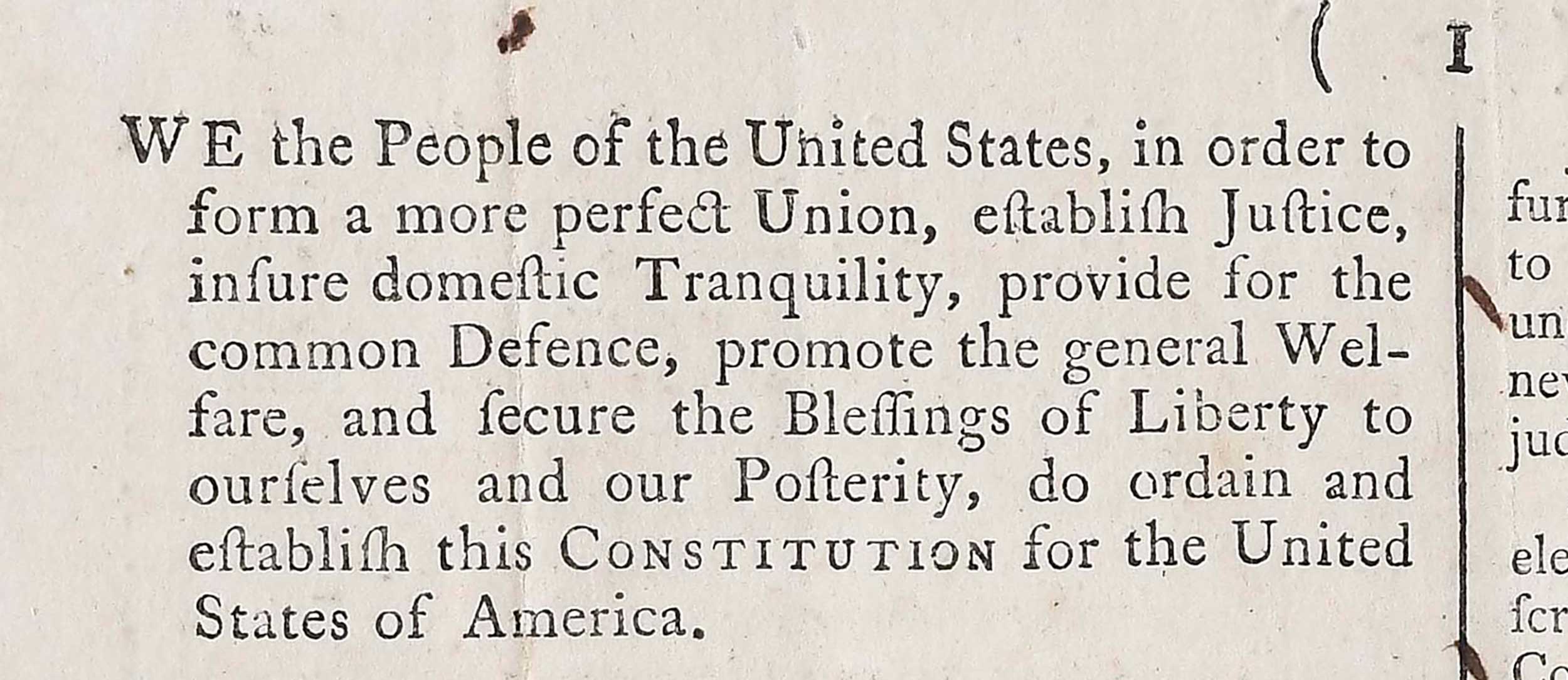
After days of contentious haggling and debate in 1787, the United States Congress agreed to follow the request of the Constitutional Convention in Philadelphia and send copies of the Constitution to the 13 states to be ratified by the people. It was a procedural step that formed a founding point of connection between the government and the populace, one proclaimed in the document’s preamble through the vaunted words “we the people.”
One such copy from that febrile year of American history is up for sale at Brunk Auctions in Asheville, North Carolina. Online bidding for the 237-year-old document has already reached $1 million ahead of the sale on September 28.
The document was found inside a filing cabinet in a historic North Carolina house. Photo: Brunk Auctions.
The copy appeared two years ago when the Hayes Plantation, a North Carolina property once owned by the state’s governor and later senator Samuel Johnston, was being cleaned out ahead of its sale. It was found inside a metal filing cabinet in a seldom-used room filled with chairs and bookcases. The Scottish-born lawyer, planter, and slaveholder represented the state at the Continental Congress and presided over the state’s conventions to ratify the Constitution.
“It has been a whirlwind, an incredibly exciting moment for the auction house,” Nan Zander, Brunk Auctions’ fine art specialist, said via telephone. “We always check on the rarity and authenticity of documents, but when it is this rare, the game steps up exponentially. It’s the prize of all prizes for rare historic documents, and the sky is the limit as far as bidding goes.”
In 1993, the Johnston family sold their copy of the Declaration of Independence to Williams College, in Massachusetts, for $412,500, a record at the time. In 2021, Kenneth Griffin bought a first printing of the Constitution for $43.2 million, a record for any document or book sold at auction.
The signed page of the U.S. Constitution sent to states. Photo: Courtesy: Brunk Auctions.
Having been hidden away for years, it remains in good condition, though it bears a heavy horizontal fold as it was designed as a broadsheet that could be closed like a book. The four-page folio was one of 100 copies hurriedly created on September 28, 1787, in New York by printer John McLean on behalf of the Philadelphia printer Claypoole.
Of the 100 copies, only eight are known to exist, with the other seven held by institutions such as the National Archives, the New York State Archives, and Brown University. This copy is signed on the fourth page by the then secretary of Congress, Charles Thomson. Not all of the copies were signed, Zander said, and it’s not known why.
The copy of the Constitution is one of nine items related to the country’s founding that are up for auction. Other lots include an “exceedingly rare” copy of The Journal of the Convention of North Carolina signed by Johnston (estimated between $7,000 and $10,000), a first draft of 1776’s Articles of Confederation (the current bid stands at $50,000), and a 19th-century German copy of Emanuel Leutze’s painting Washington Crossing the Delaware (estimated between $25,000 and $35,000).
Unknown German painter, Washington Crossing the Delaware (1850s). Courtesy: Brunk Auctions.
“When someone wanted to have an image of Washington, they often hired other artists to copy original works,” Zander said. “We believe it’s by an artist working in Germany who had access to the second version of Leutze’s painting. It’s a very good copy and should go above its high estimate.”